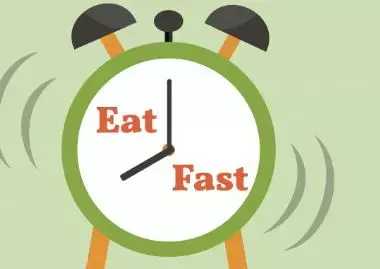- Home
- Medical news & Guidelines
- Anesthesiology
- Cardiology and CTVS
- Critical Care
- Dentistry
- Dermatology
- Diabetes and Endocrinology
- ENT
- Gastroenterology
- Medicine
- Nephrology
- Neurology
- Obstretics-Gynaecology
- Oncology
- Ophthalmology
- Orthopaedics
- Pediatrics-Neonatology
- Psychiatry
- Pulmonology
- Radiology
- Surgery
- Urology
- Laboratory Medicine
- Diet
- Nursing
- Paramedical
- Physiotherapy
- Health news
- Fact Check
- Bone Health Fact Check
- Brain Health Fact Check
- Cancer Related Fact Check
- Child Care Fact Check
- Dental and oral health fact check
- Diabetes and metabolic health fact check
- Diet and Nutrition Fact Check
- Eye and ENT Care Fact Check
- Fitness fact check
- Gut health fact check
- Heart health fact check
- Kidney health fact check
- Medical education fact check
- Men's health fact check
- Respiratory fact check
- Skin and hair care fact check
- Vaccine and Immunization fact check
- Women's health fact check
- AYUSH
- State News
- Andaman and Nicobar Islands
- Andhra Pradesh
- Arunachal Pradesh
- Assam
- Bihar
- Chandigarh
- Chattisgarh
- Dadra and Nagar Haveli
- Daman and Diu
- Delhi
- Goa
- Gujarat
- Haryana
- Himachal Pradesh
- Jammu & Kashmir
- Jharkhand
- Karnataka
- Kerala
- Ladakh
- Lakshadweep
- Madhya Pradesh
- Maharashtra
- Manipur
- Meghalaya
- Mizoram
- Nagaland
- Odisha
- Puducherry
- Punjab
- Rajasthan
- Sikkim
- Tamil Nadu
- Telangana
- Tripura
- Uttar Pradesh
- Uttrakhand
- West Bengal
- Medical Education
- Industry
Intermittent fasting not linked to more weight loss than taking regular meals: JAMA

Fasting for two-thirds of the day does not lead to greater weight loss than eating meals throughout the day, according to a randomized trial published in JAMA Internal Medicine.
Current guidelines recommend continuous energy restriction (CER) along with a comprehensive lifestyle intervention as the cornerstone of obesity treatment, yet this approach produces modest weight loss on average. Recently, there has been increased interest in identifying alternative dietary weight loss strategies that involve restricting energy intake to certain periods of the day or prolonging the fasting interval between meals (i.e., intermittent energy restriction, IER). These strategies include intermittent fasting (IMF; >60% energy restriction on 2–3 days per week, or alternate days) and time-restricted feeding (TRF; limiting the daily period of food intake to 8–10 h or less on most days of the week).
The term time-restricted feeding (TRF) is used as a subcategory of IMF to describe "an eating pattern in which food intake is restricted to a time window of 8 h or less every day".
As the efficacy and safety of time-restricted eating have not been explored in large randomized clinical trials, a group of researchers conducted this clinical trial to ascertain the effect of time-restricted eating on weight loss and metabolic health in patients with overweight and obesity.
This randomized clinical trial looked at the effect on weight loss and metabolic health of restricting eating to between 12 p.m. and 8 p.m. among overweight and obese individuals.
Roughly 100 overweight or obese adults were assigned to time-restricted eating or consistent meal timing. In the time-restricted group, participants were advised to eat as needed from 12 p.m. until 8 p.m., and then fast for 16 hours until 12 p.m. the next day. In the consistent-meals group, participants were told to eat three structured meals across the day, with snacks as needed. There were no recommendations about caloric intake or physical activity.
This 12-week randomized clinical trial including men and women aged 18 to 64 years with a body mass index (BMI, calculated as weight in kilograms divided by height in meters squared) of 27 to 43 was conducted on a custom mobile study application.
The primary outcome assessed was weight loss. Secondary outcomes from the in-person cohort included changes in weight, fat mass, lean mass, fasting insulin, fasting glucose, hemoglobin A1c levels, estimated energy intake, total energy expenditure, and resting energy expenditure.
On analysis, the following facts were highlighted.
- At 12 weeks, mean weight loss did not differ significantly between the groups (0.94 kg with time-restricted eating and 0.68 kg with consistent meals).
- Most secondary outcomes, including changes in fat mass, lipids, and fasting glucose, also did not differ significantly between the groups.
- Of note, the time-restricted group lost more appendicular lean mass than the consistent-meals group.
"Time-restricted eating, in the absence of other interventions, is not more effective in weight loss than eating throughout the day." wrote the team.
For the full article follow the link: 10.1001/jamainternmed.2020.4153
Primary source: JAMA Internal Medicine
Dr Satabdi Saha (BDS, MDS) is a practicing pediatric dentist with a keen interest in new medical researches and updates. She has completed her BDS from North Bengal Dental College ,Darjeeling. Then she went on to secure an ALL INDIA NEET PG rank and completed her MDS from the first dental college in the country – Dr R. Ahmed Dental College and Hospital. She is currently attached to The Marwari Relief Society Hospital as a consultant along with private practice of 2 years. She has published scientific papers in national and international journals. Her strong passion of sharing knowledge with the medical fraternity has motivated her to be a part of Medical Dialogues.
Dr Kamal Kant Kohli-MBBS, DTCD- a chest specialist with more than 30 years of practice and a flair for writing clinical articles, Dr Kamal Kant Kohli joined Medical Dialogues as a Chief Editor of Medical News. Besides writing articles, as an editor, he proofreads and verifies all the medical content published on Medical Dialogues including those coming from journals, studies,medical conferences,guidelines etc. Email: drkohli@medicaldialogues.in. Contact no. 011-43720751


